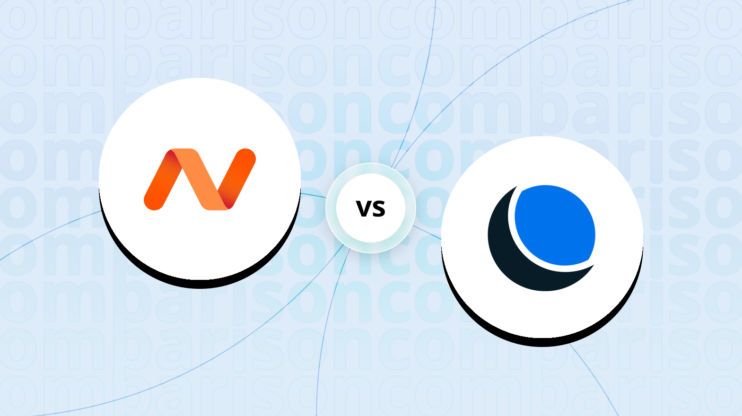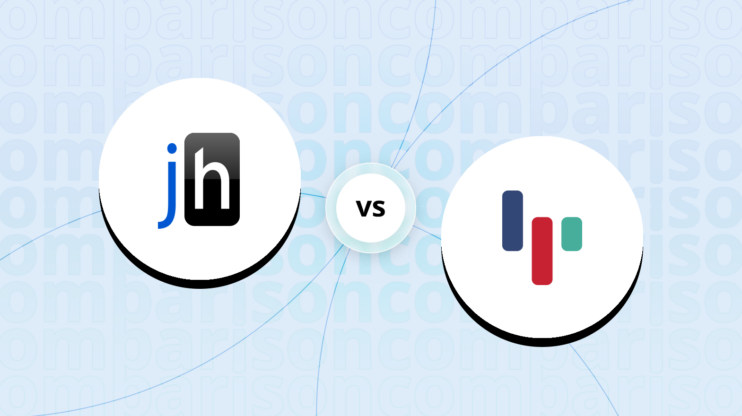Pagely vs Netim: Final verdict
Looking over Pagely vs. Netim, it’s clear why both hosts are so popular. They have both hosted millions of
websites that run on WordPress for decades, building up a loyal customer base.
-
Pagely (Overall grade: 8.1)
stands out due to its managed WordPress hosting supported by AWS Cloud, ensuring high availability and speed with a 99.99% uptime SLA. Its service includes advanced caching, a variety of high-end performance features, and extensive security measures such as AWS Shield Standard for DDoS protection. Pagely provides robust operational security with 24/7 monitoring and thorough compliance with regulations. However, its higher cost may be a barrier for smaller businesses or individuals, yet the value provided in terms of performance and expert support makes it ideal for enterprise-level clients. Pagely does not offer shared or VPS hosting, focusing instead on highly specialized WordPress and eCommerce solutions, which can be a drawback for those needing more varied hosting options.
Netim (Overall grade: 6.9)
offers a budget-friendly approach with a variety of shared hosting plans, SSD storage, and comprehensive email hosting services suited for small to medium-sized businesses. Their hosting is referred to as reliable with unlimited traffic and essential security measures, including free Let’s Encrypt SSL certificates and GDPR compliance. While Netim’s offerings are more affordable, they lack advanced features and the high-performance infrastructure provided by Pagely, such as dedicated servers or detailed user management. Netim’s localized hosting in France may appeal to users concerned with data sovereignty. The absence of 24/7 support and some developer tools can be limiting for businesses that need extensive technical control and high-level security comparable to Pagely.
 Overall grade:8.1 |
 Overall grade:6.9 |
|
|---|---|---|
| Uptime and Availability | 9.5 | 9.1 |
| Hosting Performance | 8.8 | 4.8 |
| Hosting Security | 9.2 | 8.5 |
| Price | 7.4 | 8.7 |
| Hosting Features | 4.6 | 2.8 |
| Ease Of Setup | 8.2 | 8.2 |
| User Management | 8.4 | 6.7 |
| Customer Support | 8.9 | 6.4 |
| User feedback | 4.9/5 | 4.5/5 |
Hosting types offered
Both platforms provide a variety of hosting types, each designed to meet the different needs of users.
 |
 |
|
|---|---|---|
| Shared hosting | ||
| Cloud hosting | ||
| WordPress hosting | ||
| Ecommerce hosting | ||
| VPS hosting | ||
| Dedicated hosting |
Although both offer a variety of hosting plans tailored to different needs, in
certain cases, one platform may prove to be more suitable.
Detailed comparison
Uptime and availability
Evaluates the average uptime statistics, uptime guarantee and overall availability of the hosting
provider
Score Components:
- Uptime percentage (30%): evaluates the uptime statistics in given period of time
- Uptime guarantee (20%): Assesses if the platform offers an uptime guarantee and
whether the actual uptime matches the promised guarantee. - General performance (25%): Evaluates how fast is the average response time and overall
it’s stability. - Responsiveness (10%): Adaptability to different devices and screen sizes.
- Availability (25%): Reflects the total downtime and number of outages.
 9.5
9.5
 9.1
9.1
🏆 Winner
Pagely: Pagely offers unparalleled uptime and availability with multi-region redundancy and 24/7 monitoring.

Pagely guarantees 99.99% uptime, ensuring your website remains online. With a high availability architecture, separate availability zones, and global data centers, Pagely excels in handling traffic demands effortlessly. Automatic load balancing and a built-in emergency fallback provide essential safeguards against unexpected issues.

Pagely’s service plans, from Performance to Scale, offer managed DevOps support and flexible configurations suitable for varying needs. With an average response time of 211ms and support for 1,965 requests per second, Pagely ensures excellent performance. Netim, with a slightly lower score, does not match Pagely’s extensive features and guarantees.
Which one has better hosting performance?
Score Components:
- Hosting speed (30%): This includes SSD quality, Load times, PageSpeed score ranges,
additional information on website speed, built-in plugins for performance enhancement, available caching
methods, and CPU/RAM options - CDN (20%): Considers whether CDN is available or not, whether it’s free or paid, and
the quality of the CDN service - Available data centers (30%): Evaluates the number of data centers and their locations
globally. - Scalibility (20%): Looks at whether elastic scaling is available, the process required
to scale (manual upgrade vs. automatic scaling), the presence of dedicated servers, and the costs
associated with scaling.
 8.8
8.8
 4.8
4.8
🏆 Winner Pagely: Premier hosting solution focusing on high-availability and enterprise-level services.
Pagely offers high-end performance with features like uncapped PHP workers and decoupled database resources, ensuring smooth and fast operations. With flexible configurations and advanced network security, Pagely provides highly optimized hosting environments. They employ Amazon AWS infrastructure which includes advanced CDN and caching technologies for enhanced website speed and reliability. Netim, on the other hand, caters to different needs with a variety of plans. Its SSD storage and unlimited traffic are valuable, but maximum PHP memory and execution times are not as high as Pagely’s. Netim offers a decent MySQL database and server locations exclusively in France, while Pagely’s global presence offers a broader reach.
Website Speed
Pagely takes the lead in website speed by leveraging Amazon AWS infrastructure, which promises superior caching and CDN technology. This results in faster load times and high PageSpeed scores. With 99.99% uptime SLA, Pagely ensures that sites remain operational and responsive. In contrast, Netim provides SSD storage across all plans, offering good speeds but lacks the advanced caching mechanisms and extensive AWS-powered infrastructure that Pagely brings to the table.
Scalability
Pagely excels in scalability with options ranging from Performance Lite to Enterprise Class plans. They offer elastic scaling with custom resources tailored to high-demand situations, and dedicated servers starting at $2500/mo. Plan upgrades are straightforward, but specific details about automatic scaling were not provided. Netim allows for plan upgrades within a 30-day satisfaction guarantee and offers a variety of tiers to match growing business needs. They too offer elastic scaling but without dedicated server options or bespoke enterprise configurations provided by Pagely. Pricing details for scaling were not explicitly available from Netim.
Which one has better security features?
and regulatory requirements
Score Components:
- Technical security measures (40%): This includes encryption, firewalls, DDoS
protection, secure configurations, server monitoring, access control and availability of security addons
(e.g Sitelock security). - Operational security measures (30%): Encompasses data privacy, backups and data
redundancy. - Compliance and certifications (20%): Adherence to legal and regulatory requirements
(e.g., GDPR, HIPAA) and possession of certifications (e.g., ISO 27001, SOC 2). - Business and reliability (10%): Factors in the provider’s reputation, uptime
guarantees, and customer support.
 9.2
9.2
 8.5
8.5
🏆 Winner Pagely: Provides an extensive suite of security features for optimized WordPress hosting.
Technical security measures:
Pagely offers extensive security measures, including Let’s Encrypt and custom SSL certificates, PHP long-term support through its Zend add-on, and continuous malware scanning. In contrast, Netim offers Let’s Encrypt DV SSL and Sectigo certificates, supporting the latest PHP versions like 8.3. Both hostings provide 2FA and web application firewalls, but Pagely’s use of AWS Shield Standard offers a more robust DDoS protection. Netim includes DNS Anycast and DNSSEC services for added network security, whereas Pagely ensures resource isolation for dedicated memory and CPU, offering a higher level of resource security.
Operational security measures:
Pagely provides continuous 24/7 uptime monitoring, incident response including live chat and tickets, and daily backups for rapid recovery. It also employs real-time threat detection with daily scans and advanced brute force protection measures. Netim’s operational measures include backup with a rolling 7-day period, file recovery services, and log-in alerts for account security. Although Pagely offers more comprehensive operational security measures, Netim simplifies security management with a user-friendly control panel.
Compliance and certifications:
Pagely meets numerous regulatory standards, including SOC 2 Type I & II, GDPR, and PCI-DSS compliance. This ensures their hosting environments adhere to stringent data security and privacy requirements. Netim guarantees GDPR compliance by hosting data in France but does not explicitly mention PCI-DSS compliance, though its Sectigo certificates include an insurance policy for online transactions.
 |
 |
|
|---|---|---|
SSL Certificate |
Let’s Encrypt and Custom SSL Certificates |
Let’s Encrypt DV, Sectigo DV, EV, Wildcard, Multi-Domain SSL |
Additional Security Features |
DDoS Protection, 2FA, Anti-Spam, Malware Scanning, WAF, Brute Force Protection, Resource Isolation, Website Backups, 24/7 Uptime Monitoring |
Anti-DDoS, 2FA, File Recovery Services, DNS Anycast, WAF, Log-in Alerts, DNSSEC, Domain Theft Protection, Whois Privacy |
PHP Versions |
PHP 7.4+ with Zend Add-on for long-term support |
Latest PHP Versions including PHP 8.3 |
GDPR Compliance |
Yes, data hosted in European jurisdictions |
100% GDPR Compliant, data hosted in France |
HIPAA Compliance |
Not specified |
Not specified |
PCI Compliance |
Yes, Attestation of Compliance and PCI-DSS SAQ-A completed |
Not specified |
Hosting features
Score Components:
- Domains (20%): Assesses the availability of a free domain, domain purchase options, and
pricing - Email (15%): Considers if the provider offers full email hosting, or is reselling
third-party service, and if the email is only transactional or not - Website builder (15%): Checks if website builder is available, and it’s user
friendliness and overall the level of customization allowed. - Staging environment (20%): Determines if a staging environment is available, allowing
for testing changes before going live. - FTP & SFTP accounts (10%): Evaluates if and how easily users can access FTP and
SFTP accounts - Git and SSH access (20%): Assess whether Git is integrated into the hosting service and
if SSH access is provided
 4.6
4.6
 2.8
2.8
🏆 Winner: Pagely: A powerful hosting provider known for its robust features and high reliability.
When comparing Pagely and Netim, both offer a range of features catering to different user needs, but with distinct advantages and limitations. Pagely shines with its high availability design backed by AWS Cloud, ensuring 99.99% uptime—ideal for businesses demanding reliability and speed. It offers superior caching through NGINX technology, advanced security measures, and developer-friendly tools like SSH and GIT. With its managed WordPress upgrades, customizable staging environments, and disaster recovery backups on Amazon S3, Pagely provides a holistic and secure hosting experience. Despite its higher price, the value provided in terms of performance stack and expert support makes it attractive for enterprise-level clients.
Netim, on the other hand, hosts all data in France, which could be a selling point for users concerned about data sovereignty. Offering unlimited traffic, latest versions of PHP and MySQL, and a free Let’s Encrypt SSL certificate, Netim is user-friendly and more budget-friendly. They provide a simple control panel and email services tailored to smaller businesses, ranging from basic to premium plans supporting up to 250 email addresses. However, the lack of information regarding staging environments and FTP/SFTP access could be a drawback for developers seeking more control over their hosting environment. Netim is ideal for users who need solid local hosting with unlimited traffic and basic email services.
 |
 |
|
|---|---|---|
| Free domain | No | No |
| Free SSL | Yes | Yes |
| Email hosting | No | Yes |
| Website builder | No | No |
| Staging environment | Yes | No |
| FTP & SFTP accounts | Yes | Not specified |
| Git and SSH access | Yes | Not specified |
| Free backup | Yes | Yes |
| Money back guarantee | No | No |
a location. As a result in rare cases the features mentioned here can differ from the ones you see on their websites.
Both providers support a range of users from beginners to experts with user-friendly website builders and WordPress staging areas. However, in terms of developer tools, both Pagely and Netim offer robust options including SSH access, support for multiple programming languages, and Git for version control, thus appealing to developers looking for advanced capabilities.
Email services:
Pagely does not provide built-in email hosting services, focusing instead on dedicated WordPress support and server performance. In contrast, Netim offers a range of email hosting plans, from one email address in its basic plan to 250 email addresses in its premium plan, with substantial storage and the option to manage transactional emails effectively. Netim’s approach caters to small to medium-sized businesses that require robust email solutions without relying on third-party services. For users prioritizing comprehensive email hosting and management, Netim holds a clear advantage.
Price
Score Components:
- Plan value (40%): What each pricing tier offers.
- Transparency and clarity (30%): Clearness of pricing structures.
- Flexibility of plans (20%): Range of options to suit different budgets.
- Hidden costs (10%): Additional expenses not included in the plan.
 7.4
7.4
 8.7
8.7
🏆 Winner Netim: Affordable pricing with feature-rich plans, making it a versatile hosting provider.
Evaluating the pricing of plans among various hosting providers can be complex due to their differing pricing and renewal strategies. Additionally, certain plans require annual commitments, which adds to the difficulty of making comparisons. The prices listed are based on monthly commitments; plans requiring annual commitments are indicated. Additionally, although some providers offer identical plans for WordPress and shared hosting, we have created separate tables for each to enhance clarity.
When comparing Pagely and Netim, Netim clearly offers more affordable options, particularly suitable for individuals and small to medium-sized businesses. Pagely’s plans are on the higher end of the pricing spectrum, providing comprehensive managed WordPress hosting solutions with extensive features and high availability configurations. Netim, on the other hand, emphasizes cost-effectiveness with plans starting as low as €1.50 per month, making it accessible for users with lower budgets. Notably, Netim’s plans offer good value with essential features like SSD storage, email addresses, and security measures such as HTTPS included.
 |
 |
|---|---|
|
Business Class$499/mo
developer friendly tools, shell access, CI/CD support, standard SLA, developer tools, amazing support Value for price:7.5
|
Start€1.50/mo
preinstalled WordPress, 1 website, 10GB SSD storage, 10 x 2GB email, 1 x 1GB MySQL, HTTPS included Value for price:9.0
|
|
Enterprise Class$2500/mo
Multi-region redundancy, enhanced SLAs, personal tech account management, bespoke deployments, compliance ready Value for price:7.0
|
Web+€4.50/mo
preinstalled WordPress, up to 10 websites, 100GB SSD storage, 25 x 2GB email, 10 x 2GB MySQL, HTTPS included Value for price:8.5
|
|
N/A
|
Mail+€4.50/mo
preinstalled WordPress, 1 website, 10GB SSD storage, 50 email addresses, 1 x 2GB MySQL, HTTPS included Value for price:8.0
|
|
N/A
|
Premium€9.00/mo
preinstalled WordPress, up to 30 websites, 300GB SSD storage, 250 email addresses, 30 x 5GB MySQL, HTTPS included Value for price:8.2
|
 |
 |
|---|---|
|
N/A
|
LiteFree
1 website, 250MB SSD storage, 1 x 1GB email, MySQL 8.0, HTTPS included Value for price:7.0
|
|
N/A
|
Start€1.50/mo
1 website, 10GB SSD storage, 10 x 2GB email, 1 x 1GB MySQL, HTTPS included Value for price:9.0
|
|
N/A
|
Web+€4.50/mo
up to 10 websites, 100GB SSD storage, 25 x 2GB email, 10 x 2GB MySQL, HTTPS included Value for price:8.8
|
|
N/A
|
Mail+€4.50/mo
1 website, 10GB SSD storage, 50 email addresses, 1 x 2GB MySQL, HTTPS included Value for price:8.5
|
|
N/A
|
Premium€9.00/mo
up to 30 websites, 300GB SSD storage, 250 email addresses, 30 x 5GB MySQL, HTTPS included Value for price:8.7
|
 |
 |
|---|---|
|
Performance Lite$375/mo
1 website, 2 vCPU, 4 GB RAM, 50 GB SSD, no cap on PHP workers, automated backups, advanced security Value for price:6.5
|
N/A
|
|
Performance$499/mo
1 website, 2 vCPU, 4 GB RAM, 50 GB SSD, no cap on PHP workers, automated backups, advanced security Value for price:6.0
|
N/A
|
|
Performance+$999/mo
1 website, 4 vCPU, 8 GB RAM, 50 GB SSD, no cap on PHP workers, automated backups, advanced security Value for price:5.5
|
N/A
|
|
Scale$2500/mo
1 website, custom CPU and RAM, custom SSD storage, dedicated database resources, full managed DevOps and support Value for price:6.0
|
N/A
|
|
N/A
|
N/A
|
Enterprise plans
Pagely’s Enterprise Class WordPress Hosting offers extensive features like multi-region redundancy, enhanced service level agreements, and personalized technical account management, starting at $2500 per month. These features make it ideal for large enterprises looking for high availability and robust security. Netim’s enterprise plans, while more affordable, focus on providing essential resources and support fit for businesses that need to host multiple websites.
Pagely vs Netim: Ease of setup
platform.
Score Components:
- Site migration (25%): Assesses whether the provider offers tools for site migration,
either automated or manual, and whether these services are free or require a fee. - Admin panel usability (35%): Evaluates the type of admin panel provided, such as the
standard cPanel or a custom solution, focusing on its accessibility and user-friendliness for both
technical and non-technical users. - Setup features (20%): Examines the availability and ease of use of various setup
features, including FTP accounts, file managers, email account setup, PHPMyAdmin, and easy CDN
configuration. - Help center quality (20%): Measures the quality and accessibility of the provider’s
help center resources, including articles and tutorials.
 8.2
8.2
 8.2
8.2
🏆 Winner
Pagely: A provider known for its managed WordPress hosting with extensive support resources.
Pagely uses a custom admin panel designed specifically for managing WordPress sites. This panel offers a variety of tools for site staging, deployment, and caching, as well as command-line tools for more advanced users. The interface is intuitive, catering to both technical and non-technical users. By contrast, Netim provides a user-friendly control panel called Netim Direct, which is more generalized and includes settings for domain management, hosting, renewals, and security. While both are accessible, Netim’s focus on broader hosting management may appeal more to users who need versatile domain and hosting control.
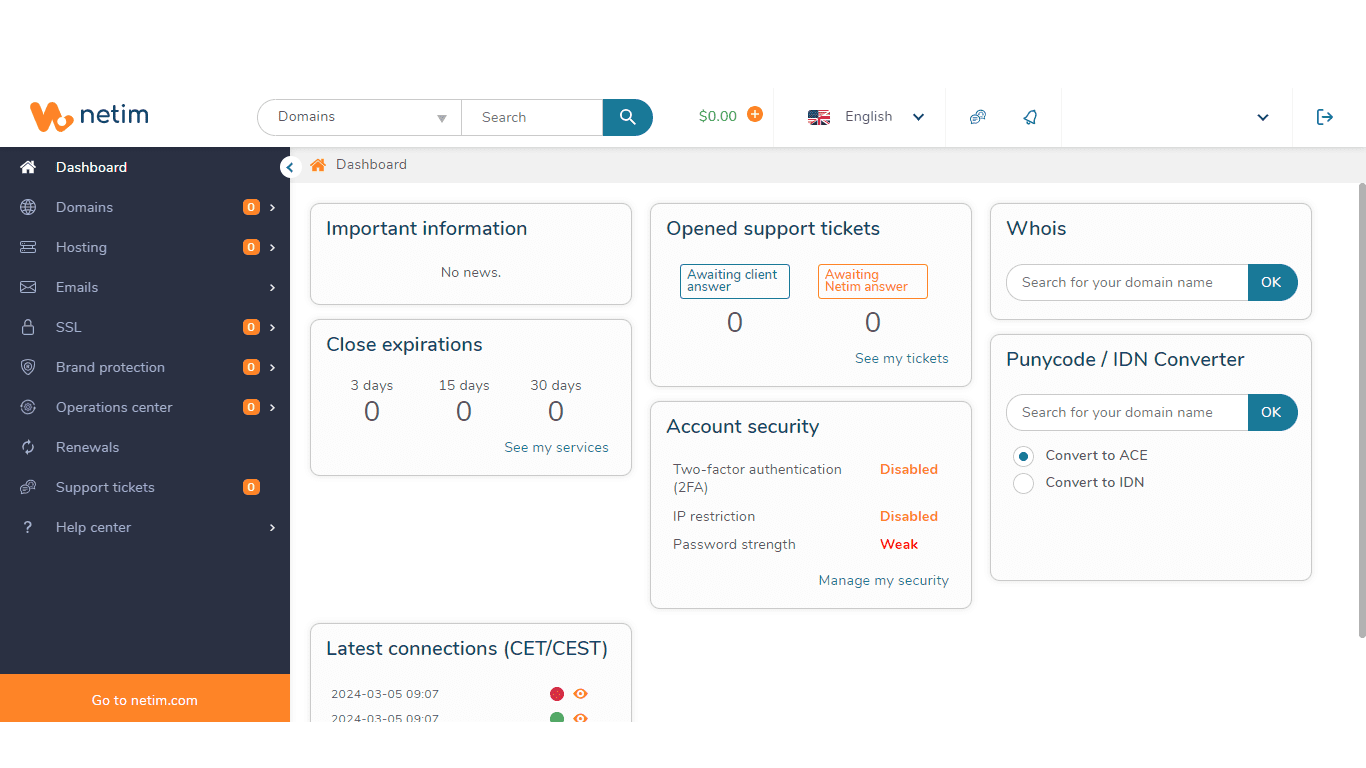
Pagely’s admin panel excels in WordPress-specific functionalities, providing smooth operations for setting up environments and managing caching through PressCACHE. For Non-WordPress sites, Netim’s Netim Direct offers broader usability, addressing a variety of needs from domain registration to SSL management and renewal processes. Although both panels aim for simplicity and efficiency, Pagely’s custom solution offers a more tailored experience to WordPress users, whereas Netim’s panel delivers versatility beyond WordPress.
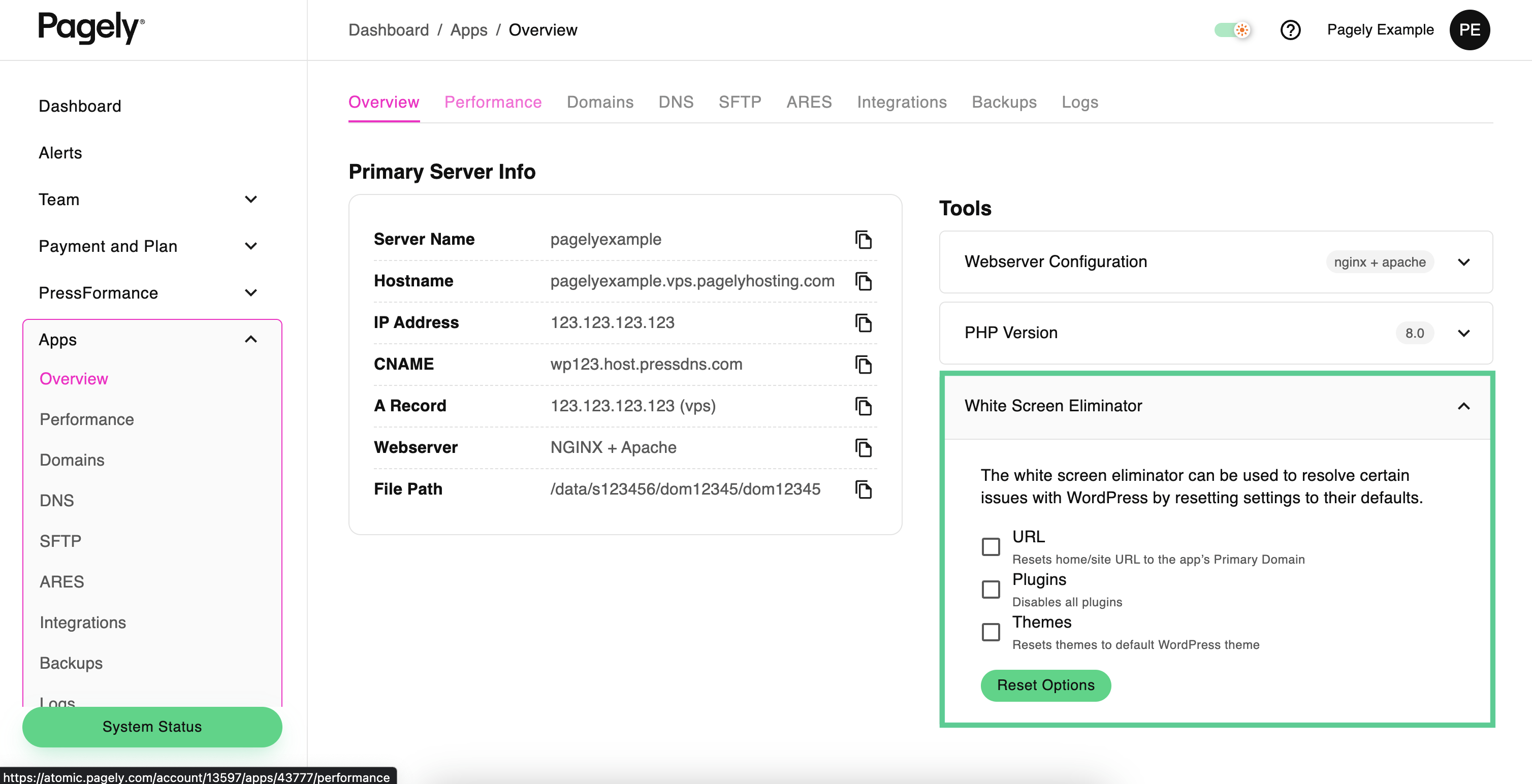
Pagely stands out with its support for seamless site migration, providing comprehensive guides and support channels for users to move their sites to its managed WordPress hosting. Users can submit tickets or use live chat for more immediate assistance. Netim, on the other hand, offers an email migration tool that helps users transfer their emails and folders. While both providers facilitate migrations, Pagely’s focus on comprehensive site migration support is more complete.
Pagely’s help center is extensive, covering everything from WordPress basics to advanced security and scaling strategies. The well-categorized articles make it easy for users to find the help they need. Netim’s help center is also broad, offering documentation on hosting, domains, emails, and SSL certificates, but it is less focused on WordPress-specific needs. Overall, Pagely’s help center offers a slightly more specialized set of resources for WordPress users.
User management
accessibility.
Score Components:
- Role customization (40%): Flexibility in creating and defining user roles and
permissions. - Ease of management (30%): User interface and tools for managing users.
- Access control (20%): Effectiveness of access control measures for different user
levels. - Scalability (10%): Ability to manage a growing number of users efficiently.
 8.4
8.4
 6.7
6.7
🏆 Winner Pagely: Superior user management capabilities and flexible user role configurations.
Pagely offers a well-defined and highly flexible system for managing user roles and permissions, including roles such as Account Owner, Super-Admin, Sub-Admin, Tech, Billing, App-Only, and App-Only-Minimal. Each role has specific permissions catering to different levels of control and accessibility, making it versatile for various administrative needs. On the other hand, Netim lacks detailed information on user management features, which limits its ability to be assessed alongside Pagely. Pagely’s structured approach to user roles and permissions gives it an edge in providing comprehensive user management.
Pagely provides an intuitive user interface designed to ease the management of different user roles. The platform’s dashboard enables quick navigation to manage roles, permissions, and account settings efficiently. The tools for user management are clear and straightforward, ensuring users have access to necessary functionalities without being overwhelmed. Without comparable details on Netim’s user management interface, assessing its capabilities becomes challenging, placing Pagely ahead in this aspect.
Access control measures on Pagely are robust, providing detailed permission levels and effective account security management, including 2-factor authentication and site-level user controls. The scalability of Pagely’s user management features supports an expanding user base efficiently. Netim’s lack of publicly detailed user management and access control strategies suggests that it may not handle the growing complexity of user management as effectively as Pagely.
Pagely User Roles Table:
| Role | Description | Access highlights |
|---|---|---|
| Account Owner | Top-level role managing the entire account. | Create Admin users, Manage Billing/Tech users, Access backups, Force 2FA. |
| Super-Admin | High-level administrative role with broad access. | Manage account, Billing/Tech users, 2FA, Sites, SSH/SFTP keys, Access backups. |
| Sub-Admin | Manages account functionalities and site users. | Manage site-level users, 2FA, Sites, SSH/SFTP keys, Access backups. |
| Tech | Focuses on technical site management. | Manage sites, 2FA, SSH/SFTP keys, Access backups, SSH into VPS servers. |
| Billing | Handles financial and account security tasks. | Manage 2FA, SSH/SFTP keys, Access backups. |
| App-Only | Limited role for application-level tasks. | Manage 2FA, SSH/SFTP keys, Access backups. |
| App-Only-Minimal | Minimal access for essential application tasks. | Manage 2FA, SSH/SFTP keys, Access backups. |
Customer support
hosting provider.
Score Components:
- Support communication channels (30%): Measures the variety of customer support types
provided (live chat, chatbot, email, phone, etc.) - Availability (20%): Assesses the availability hours for each channel, including 24/7
support options. - Technical support quality (30%): Assesses whether the provider offers comprehensive
technical support, including hardware upgrades (e.g., HDD to SSD), software installations, and web
server configuration changes. - Enterprise support (20%): Checks if there are dedicated or priority support services
for enterprise-level customers.
 8.9
8.9
 6.4
6.4
🏆 Winner Pagely: Pagely shines with tierless support and a high customer satisfaction rate across multiple communication channels.
 |
 |
|
|---|---|---|
Phone support |
||
Live chat support |
||
Chatbot |
||
Email/ticket support |
||
Enterprise support (dedicated agent, priority support) |
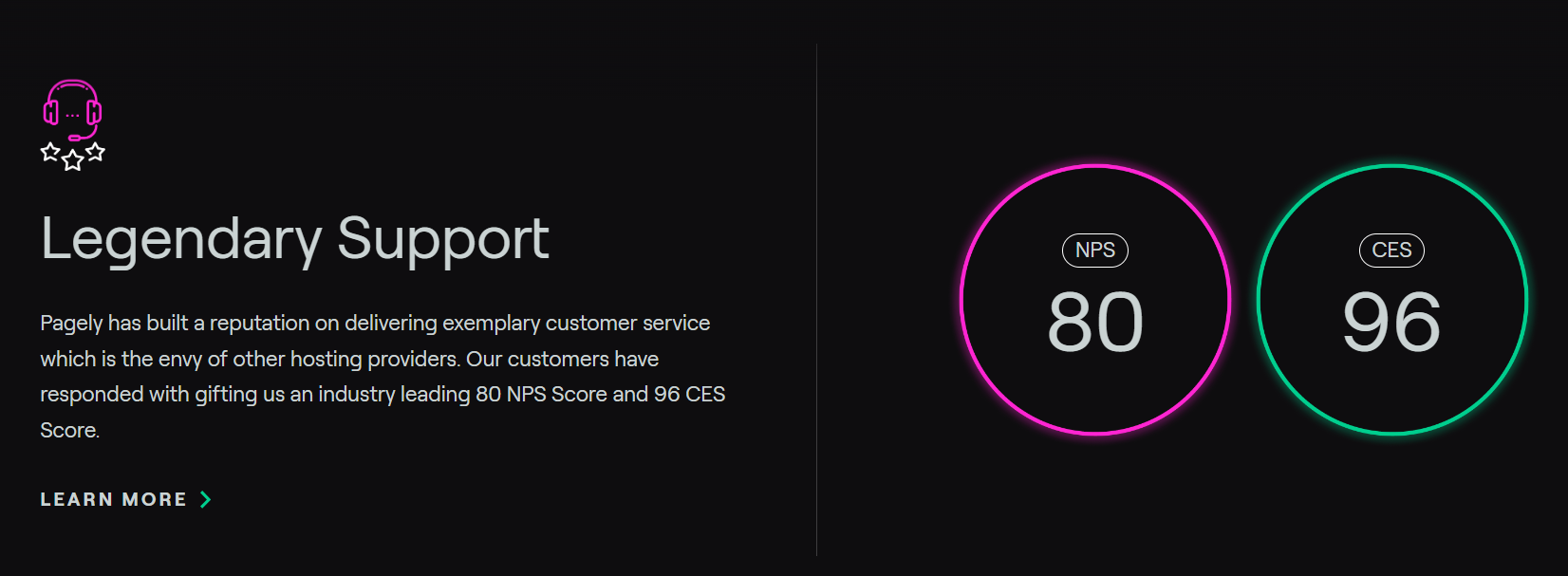
Pagely offers extensive support options including 24/7 availability through support tickets and live chat, making it easier to get help when needed. Customers are assisted by knowledgeable engineers without the need for tiered escalation, ensuring prompt and effective resolutions. Their onboarding process for most plans and multiple support channels, such as phone support and Slack, provide a comprehensive support experience.

Netim focuses on availability in two languages with a response time within 4 business hours, operating from Monday to Saturday. While they offer a straightforward support system through messages, their channels lack the variety found in Pagely. The absence of live chat, phone support, and dedicated agents may limit the immediacy and depth of support some users require, but their 30-day money-back guarantee provides a safety net for new users.
Pagely vs Netim: User feedback
Users highly appreciate this hosting provider for its exceptional reliability and top-notch customer support, often comparing it to having an on-call DevOps team. The platform is praised for its speed, security, and a suite of features designed specifically for WordPress hosting. Many find the management tools intuitive and effective, though some express a desire for improvements in specific areas like the Atomic dashboard and multi-user access. The main criticism revolves around the high cost, which is noted as a barrier for smaller operations, but many users agree the premium price is justified by the service’s quality and reliability.
Users generally appreciate this hosting provider for its competitive domain name registration pricing and the range of features offered. Customer service is positively highlighted, particularly in contrast to other providers that often rely on automated responses. However, some users find the user interface and experience subpar, making it difficult to navigate the site. Overall, the service is praised for its reliability and organizational tools, especially for keeping multiple sites up and running efficiently.
Pagely vs Netim: FAQ
Which platform is better suited for hosting WordPress websites?
Pagely is better suited for hosting WordPress websites due to its specialized managed WordPress hosting, advanced security features, and performance optimizations backed by AWS infrastructure. While Netim also offers WordPress hosting, it lacks the high-end performance and dedicated WordPress tools provided by Pagely.
Which hosting service offers better security features?
Pagely offers better security features with advanced measures like AWS Shield Standard for DDoS protection, continuous malware scanning, and comprehensive compliance with SOC 2 and GDPR. In comparison, Netim provides essential security features like Let’s Encrypt SSL certificates and GDPR compliance but lacks the extensive high-level security infrastructure provided by Pagely.
What are the major differences in pricing and value between pagely and netim?
Pagely’s plans are more expensive, starting at $499/mo, offering high-end managed WordPress solutions with extensive features, support, and high availability. Netim provides more affordable options starting as low as €1.50/mo, delivering essential features suitable for smaller businesses. The significant price difference reflects Pagely’s focus on enterprise-level performance and support, whereas Netim emphasizes cost-effectiveness.
Which platform offers better customer support?
Pagely offers superior customer support with 24/7 availability through phone, live chat, and email/ticket systems, ensuring prompt assistance by knowledgeable engineers. Netim, while providing support in two languages and a 4-business hour response time, lacks the diverse support channels offered by Pagely and does not have live chat or phone support.
How do the providers handle email hosting and what features are included?
Pagely does not provide built-in email hosting services, focusing solely on WordPress performance and infrastructure. Netim, on the other hand, offers a range of email hosting plans with substantial storage and features tailored for small to medium-sized businesses, including up to 250 email addresses and management of transactional emails.
The making of this blog
We followed a clear, step-by-step process to write and research this article.












